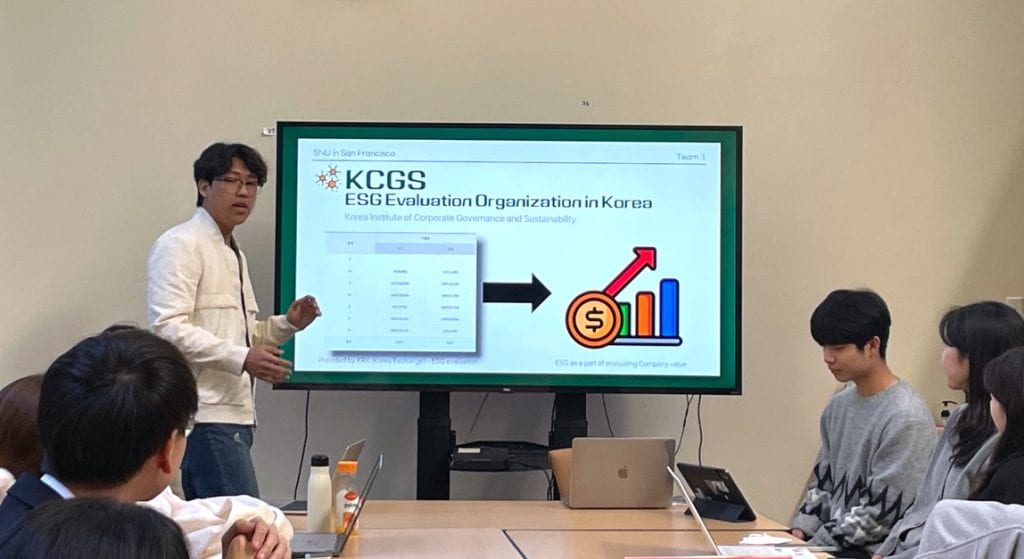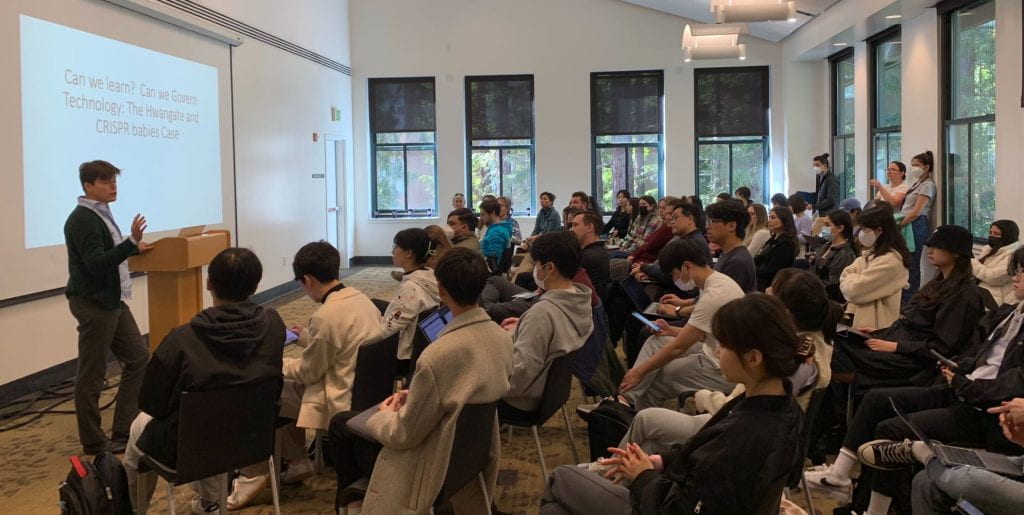SNU In the World Program 2023 Rapporteur Report
Innovation, Science & Justice
University of California, Santa Cruz
January 29, 2023 – February 11, 2023
Over a two-week period in early 2023, the Science & Justice Research Center (SJRC) hosted 27 visiting scholars (including Professor Doogab Yi, 4 graduate students, and 22 undergraduates) from Seoul National University (SNU) as part of the SNU in the World Program to learn about the work being done at the University of California, Santa Cruz (UCSC) by SJRC affiliates. The SNU in the World Program, administered by the Office of International Affairs (OIA) at SNU, is a university-led and government-funded initiative to train South Korean undergraduate students to be globally engaged scholars and leaders. The SNU in the World Program at UCSC is one of five other programs selected for funding and focuses on Innovation, Science and Justice. Other SNU Programs included visits to Washington DC (public policy), Japan (sustainable development), and Australia (climate crisis).
The program was facilitated by Doogab Yi, Associate Professor of Science Studies at Seoul National University, who brought together a diverse group of students from fields including the biological sciences, chemistry, computer science, engineering, industrial design, philosophy, sociology, english, business administration, and fashion design. Over the two-week program students participated in an in-depth series of lectures, workshops, reading groups, and field trips focused on exploring some of today’s most pressing issues including biomedical innovation, environmental justice, climate change, health equity, and toxic ecologies. Students were also able to participate in the Mellon Sawyer Seminar Series “Race, Empire, and the Environments of Biomedicine” by attending Kaushik Sunder Rajar’s lecture “Ethnographic Trans-formations: Cases, Life Histories, and Other Entanglements of Emergent Research.”
With the SJRC, SNU visiting scholars learned about a few of the projects and initiatives SJRC co-directors Jenny Reardon and James Doucet-Battle are working on, including an initiative by the University of California with Historically Black Colleges and Universities (UC-HBCU) a partnership with North Carolina Agricultural & Technical State University aimed at improving diversity in UC doctoral biology programs, as well as the Leadership in Ethical & Equitable Design (LEED) of STEM Research Project. Both projects are aimed at increasing diversity within STEM research and addressing issues of equity at the intellectual and institutional level in order to secure more just and equitable forms of science and engineering. The group also met with SJRC affiliates and student fellows in the UCSC Sustainability Office, the UCSC Genomics Institute, and joined for a session of the UCSC IBSC Stem Cell Journal Club. In these sessions, they explored issues ranging from bioethical questions raised by innovative biotechnologies like stem cells, to human rights issues raised by technologies of war.
The group participated in several field trips throughout the local Bay Area including visiting with Dongoh Park, Senior Policy Advisor for Google’s Global Trust and Safety Team on the Google campus in Silicon Valley. The group also visited the UC San Francisco (UCSF) Medical Center at Mission Bay to learn about the cutting edge research and clinical treatment innovations there as well as the justice issues raised by the building of the Google campus. A highlight of the field trip was a lecture by Fred Turner, Professor of Communication at Stanford University who also serves on the SJRC Advisory Board. Professor Turner’s talk, “Cultures of Innovation,” drew on research from his award winning book From Counterculture to Cyberculture and explored how culture creates ideological models for the reimagination of technology. Turner showed how the 1960s counterculture movement influenced the emergence of cyberculture. Both are predicated on technology as a tool for personal transformation, and labor as a tool for personal growth.
While in San Francisco students participated in a walking tour of Third Street as part of the SJRC’s Just Biomedicine project. Just Biomedicine is a SJRC research collective that critically examines the meeting of biomedicine, biotechnology, and big data along the Third Street corridor in the Mission-Bay neighborhood of San Francisco, California. The walking tour was designed to allow participants to view how technoscientific transformations can build into cityscapes new inequalities and injustices (i.e., new challenges to democratic governance; new surveillance regimes; and new forms of social stratification). The walking tour allowed participants to experience the stratified health and wealth outcomes of the push towards biomedical innovation in San Francisco.
“Diversity is an open attitude that understands and respects various individuals and groups and does not exclude unjustly.”
From the presentation, “Diversity: Aligning the Ideal with the Practical,” by Min Joo Lee, Hyeon Beom Choi, Su Hyun Hur, & Yi Ji Kim.
At the end of the two-week program, project teams presented their final group research projects. Final projects covered topics including:
- how historical cases of injustice and discrimination have led to mistrust of the contemporary healthcare system; (Link)
- the need to address both ethical and practical aspects of diversity through the development of policies and incentives to enhance diversity; (Link)
- how the theoretical concept of slow science can be applied through an Environmental Social Governance (ESG) model; (Link)
- what environmental justice issues vulnerable populations in Korea are currently facing; and (Link)
- how the drive towards innovation has historically resulted in exploitation, inequity, and discrimination highlighting the new for “Just Innovation.” (Link)
All of these projects attempted to apply and analyze practical approaches to addressing issues of equity and justice in the realms of science and technology.
If you are interested in presenting or meeting with SNU in late January 2024 or late January 2025, please contact Jenny Reardon (reardon1@ucsc.edu) and Colleen Stone (colleen@ucsc.edu).
Photos:
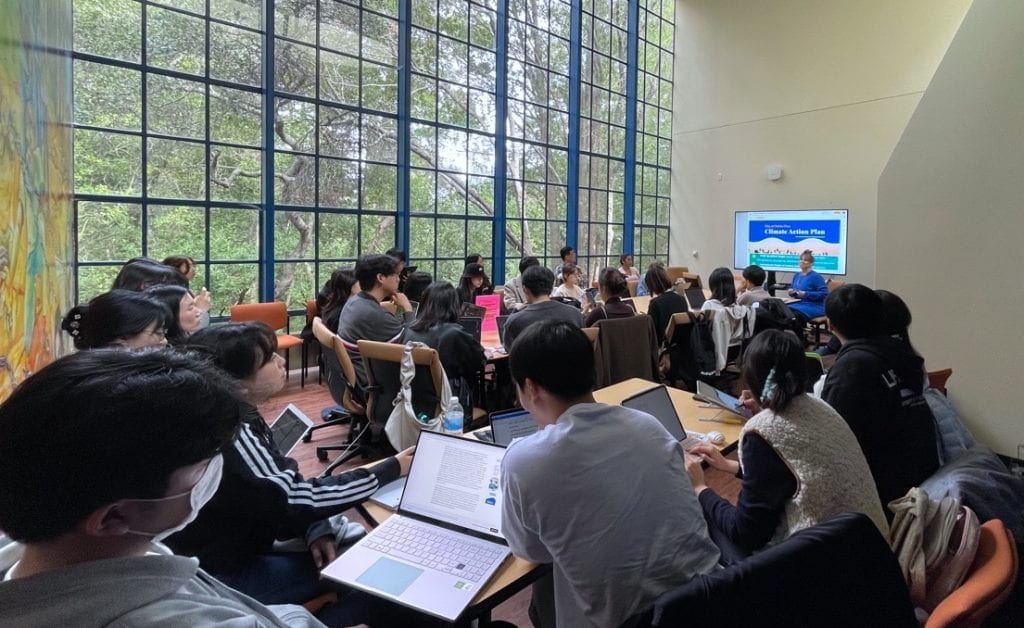
Image 1: Group lecture in the Oakes College Mural Room with Tiffany Wise-West, Sustainability and Climate Action Manager, City of Santa Cruz. Photo by Jenny Reardon.
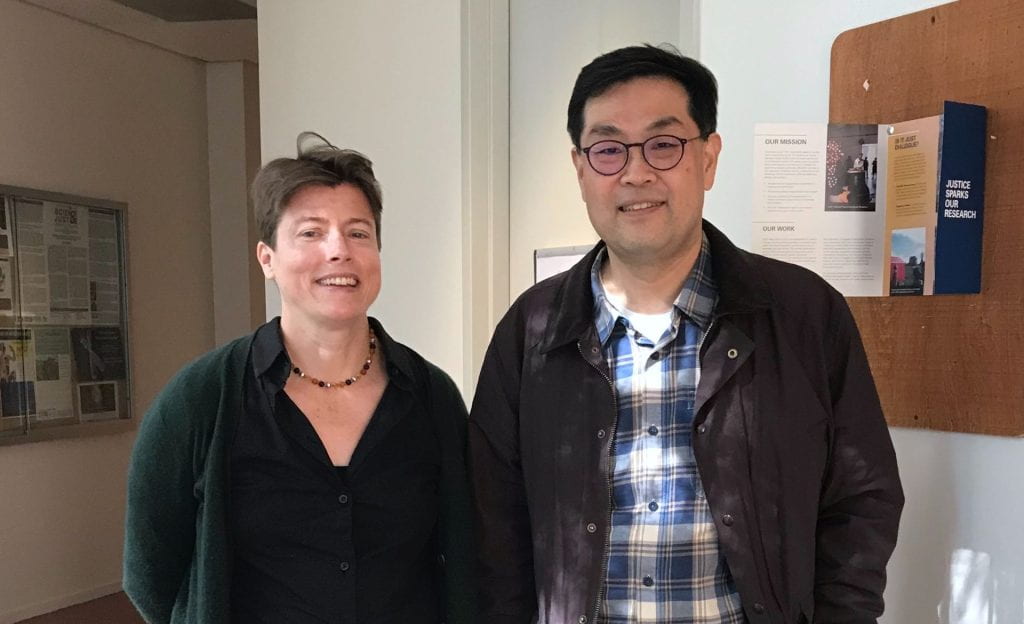
Image 2: Professor Jenny Reardon (UCSC) and Professor Doogab Yi (SNU). Photo by Colleen Stone.
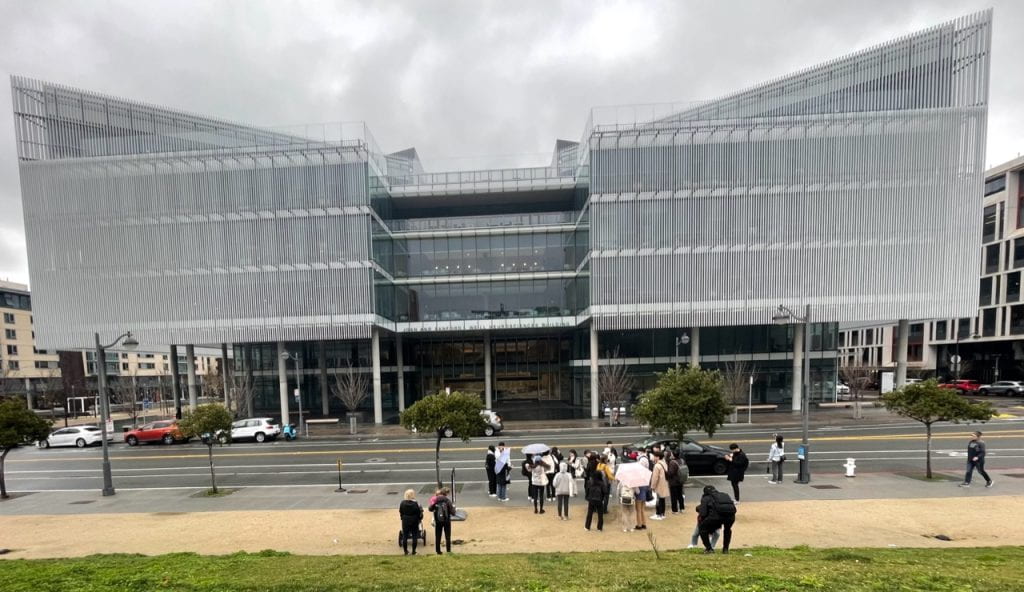
Image 3: Third Street Walking Tour, San Francisco. Photo by Dennis Browe or Jenny Reardon in front of the Joan and Sanford Weill Neurosciences Building.

